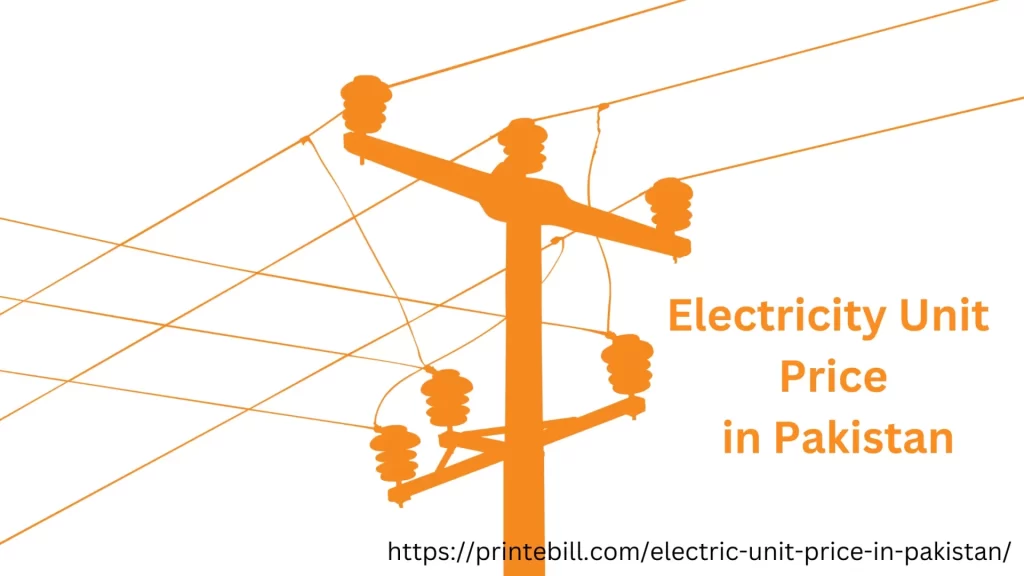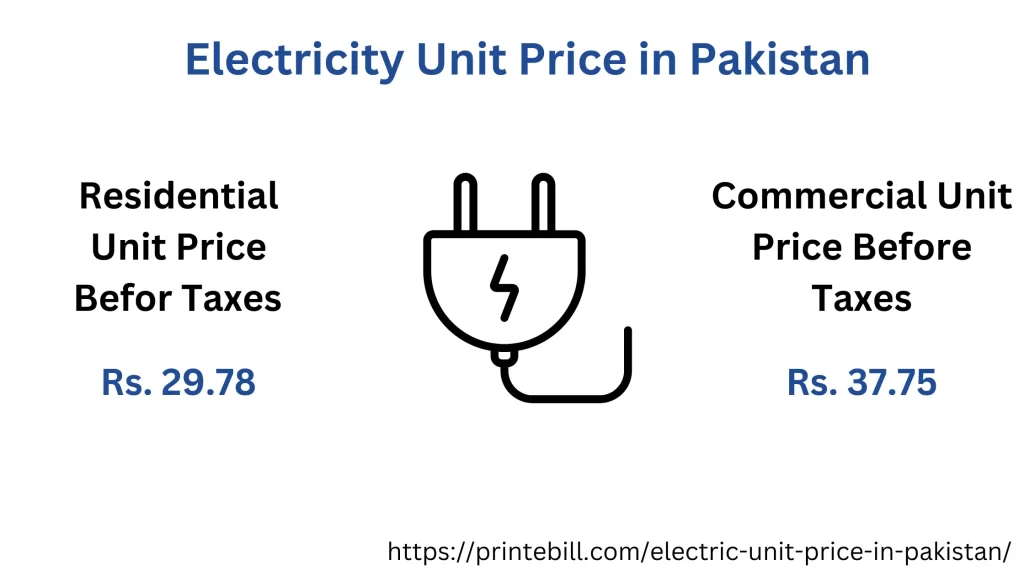Electric Unit Price in Pakistan
Electric unit price in Pakistan are a hot topic these days, sparking conversations in homes and businesses alike. As we navigate through 2024, the cost of electricity has become a crucial factor in our daily lives, impacting everything from household budgets to business operations. Whether you’re a homeowner trying to keep your monthly bills in check or a business owner looking to manage operational costs, understanding the current electricity tariffs is essential.
Table of Contents
Understanding Electric Units Price in Pakistan
Electric units, commonly measured in kilowatt-hours (kWh), are a standard metric for quantifying electricity consumption. They determine the amount of energy consumed by various electrical devices over time. In Pakistan, the pricing structure for electric units is a subject of paramount importance, influencing both residential and commercial sectors.
Check KE Bill here

Factors Influencing Cost of Electricity per Unit in Pakistan
Several factors contribute to the determination of electric unit prices in Pakistan:
1. Energy Source Mix
The primary sources of energy in Pakistan include hydroelectric, thermal, solar, and wind power. Fluctuations in the availability of these sources can impact the overall cost of electric units. For instance, a higher reliance on imported fuels might lead to price variations based on global market trends.
2. Infrastructure Development
Investments in the nation’s energy infrastructure play a pivotal role in determining electric unit prices. Upgrades to transmission lines, power generation plants, and distribution networks can influence the final cost consumers pay per unit.
3. Government Policies and Subsidies
Government policies, subsidies, and tax incentives can significantly affect electric unit pricing. Subsidies aimed at promoting clean energy solutions may lead to more favorable rates for consumers, encouraging wider adoption.
4. Demand and Supply Dynamics
The electricity demand varies throughout the year, peaking during certain seasons or times of the day. Supply shortages during peak demand can lead to pricing adjustments to manage consumption and prevent blackouts.
5. Technological Advancements
Advancements in technology, such as smart meters and energy-efficient appliances, can impact how electric units are measured and consumed. These innovations can lead to more accurate billing and encourage energy conservation.
Residential Electricity Unit Price
Residential consumers in Pakistan are billed based on a tiered pricing structure. This structure involves different pricing levels depending on the amount of electricity consumed. It aims to promote energy conservation while providing lower rates to those who use less electricity.
Check SEPCO Bill here
The first tier, meant for lower consumption, enjoys a comparatively lower per-unit cost. As consumption increases and moves into higher tiers, the cost per unit gradually rises. This tiered approach encourages households to be mindful of their energy usage.
| Units Consumed | For Protected Consumer Price/unit |
|---|---|
| 01 – 100 | 7.74 |
| 100 – 200 | 10.06 |
| Unit Consumed | For Un-protected Consumer Price/unit |
|---|---|
| 1- 100 Units | 16.48 |
| 101- 200 Units | 22.95 |
| 201- 300 Units | 34.26 |
| 301- 400 Units | 39.15 |
| 401 – 500 Units | 41.36 |
| 501 – 600 Units | 42.78 |
| 601 – 700 Units | 43.92 |
| above 700 Units | 48.84 |
Commercial Electricity Unit Prices in Pakistan
For commercial entities, electric unit pricing in Pakistan can vary based on factors such as the type of business, peak demand, and total energy consumption. Large-scale industries might negotiate customized rates based on their unique requirements and contribution to the economy.
| Commercial Unit | Price without Taxes |
|---|---|
| 1 | 38.59 |

Tips for Managing Electric Costs
To effectively manage electric costs in Pakistan, consider the following tips:
1. Embrace Energy Efficiency
Invest in energy-efficient appliances, lighting, and HVAC systems to reduce overall consumption and lower your electric bills.
2. Time your Usage
Be mindful of peak hours and try to shift energy-intensive tasks to off-peak periods to take advantage of lower rates.
3. Regular Maintenance
Ensure that electrical systems, machinery, and equipment are well-maintained. Faulty equipment can lead to energy wastage and higher bills.
4. Renewable Energy Adoption
Explore the possibility of integrating solar panels or wind turbines into your residential or commercial setup. Generating your own electricity can lead to substantial long-term savings.
Conclusion
Understanding the electric unit price in Pakistan is crucial for both residential and commercial consumers. Various factors, including the energy mix, infrastructure, government policies, and technological advancements, contribute to the determination of electric unit prices. By embracing energy-efficient practices and exploring renewable energy options, consumers can effectively manage their electric costs and contribute to a sustainable future.
